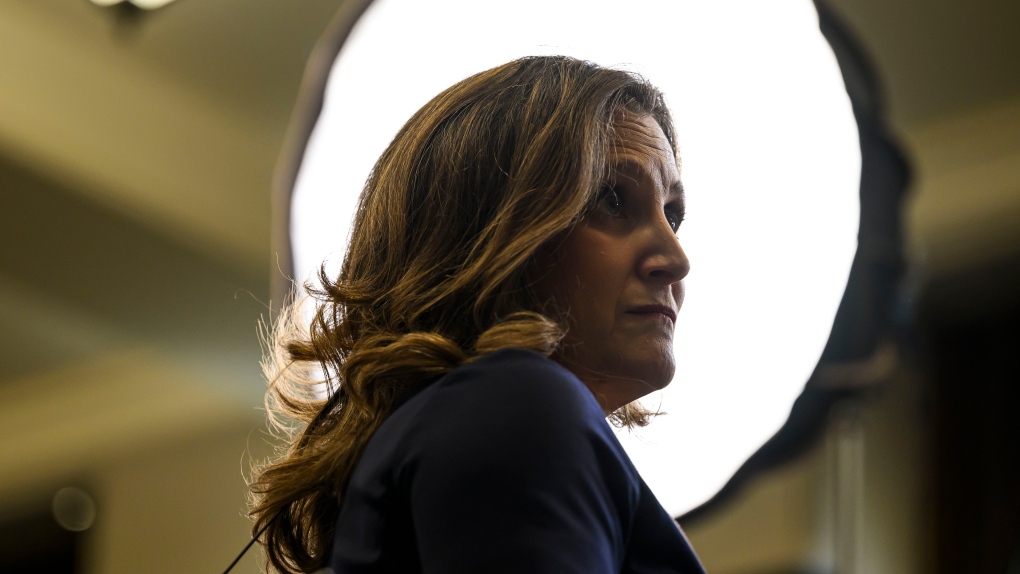The federal government is finalizing a multi-billion-dollar agreement with Newfoundland and Labrador to financially restructure the over-budget and behind-schedule Muskrat Falls hydroelectric project, CBC News has learned.
Sources with knowledge of the agreement say Ottawa will buy an equity stake in the project and guarantee more of its debt to reduce borrowing costs and help keep electricity prices low. The precise dollar amounts weren’t shared with CBC News.
Sources say negotiations are continuing today with the aim of finalizing the agreement in the hours before the prime minister’s scheduled pre-election visit to the province.
Prime Minister Justin Trudeau and Premier Andrew Furey are expected to announce the deal in St. John’s on Wednesday.
The 824-megawatt hydro project in central Labrador has been plagued by delays, cost overruns and political controversy in the decade since it was first announced.
The enormous debt of the out-of-control project threatened to worsen the provincial government’s already weak financial position and force it to find hundreds of millions of dollars a year to subsidize electricity rates.
Without this new arrangement, electricity rates would have jumped by 75 per cent to cover the project’s costs. Sources say the financial relief in the agreement will allow the province to avoid those catastrophic rate increases — though it won’t completely offset the need for rates to rise over time.

The deal is the result of high-level negotiations that started last December when Trudeau appointed Serge Dupont, a former deputy clerk of the Privy Council, to negotiate the financial restructuring of Muskrat Falls.
Dupont negotiated with Brendan Paddick, a telecommunications executive and close adviser to Furey. The premier picked Paddick to lead Newfoundland and Labrador’s rate-mitigation team.
The goal was to find a way to mitigate the financial damage done by the project’s runaway development without inflicting punishing rate increases on an aging population in an economically struggling province.
Project costs have doubled
Then-premier Danny Williams pitched Muskrat Falls in 2010 as a green energy option to replace the province’s largest oil-burning power generation facility and meet future demand. It would bring Labrador power to the island of Newfoundland and then into Nova Scotia through a series of sub-sea cables.
The entire project was supposed to cost just $6.2 billion. But after a decade of delays and deception, the final price tag is now set to come in at more than $13 billion.
The project was spearheaded by Nalcor Energy, a powerful Crown corporation Williams created to transform Newfoundland and Labrador into a major energy supplier.
Last year, a judge-led provincial inquiry found that the former Nalcor leadership “concealed information that would undermine the business case reported to the public, to [the provincial government] and to Nalcor’s board of directors.”
Finding a way to limit the damage done by Muskrat Falls is one of the most pressing political issues facing Newfoundland and Labrador. Without significant mitigation, average electricity bills will spike from 13 cents per kilowatt hour to just under 23 cents when the project finally delivers power later this year.
The province’s Public Utilities Board, which sets electricity rates, completed a study of mitigation options that found ways to hold rates to 20 cents per kilowatt hour.
But the utilities board warned that a price increase of that magnitude would be too much to absorb for people in a province with high unemployment, and could make major employers less competitive. It concluded that limiting rates further would require significant help from the federal government that could include a financial restructuring of the project.
The provincial Liberal government and the taxpayer-owned Nalcor have been trying to find a combination of cost savings and revenue options to cap that massive rate increase.
But doing so would require hundreds of millions of dollars a year, at a time when the provincial government is already running record deficits.
Last year, the federal government helped Newfoundland and Labrador manage the rising cost of Muskrat Falls by temporarily waiving debt and financing charges.
This restructuring arrangement will be the third time the federal government has helped to directly underwrite the cost of the project.
In November 2012, former prime minister Stephen Harper agreed to guarantee up to $5 billion of the project’s debt. That allowed the provincial government to access the federal government’s much stronger credit rating and lowered interest payments.
At the time, Muskrat Falls was projected to cost $7 billion. By 2016, costs had ballooned to $11.4 billion.
Jim Carr, the natural resources minister at the time, agreed to increase the loan guarantee by an additional $2.9 billion, increasing the federal government’s guarantee to $7.9 billion.




More Stories
Ukraine’s ambassador slams Canada for Airbus sanctions waiver on critical Russian mineral | CBC News
New Indigenous loan guarantee program a ‘really big deal,’ Freeland says at Toronto conference
Green deputy leader sentenced to jail for Fairy Creek old growth protests